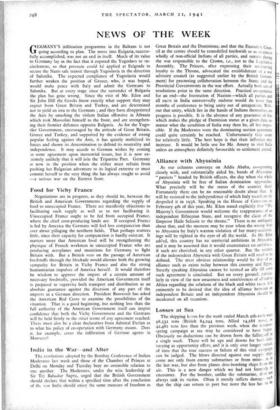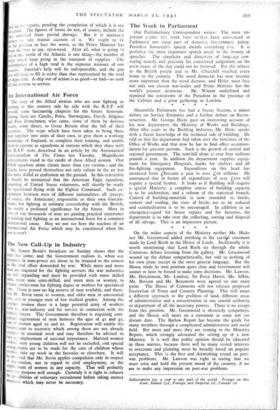Losses at Sea
The shipping lc sses for the week ended March 9th-loth were 98,332 tons (British 84,244 tons, Allied 14,588 tons), or 42,482 tons less than the previous week, when the intensive spring campaign at sea may be considered to have begun. Obviously no deductions can be drawn from the falling-off In a single week. There will be ups and downs for both sides varying as opportunity offers, and it is only over longer Periods of time that the true success or failure of this vital campaign can be judged. The blows directed against our supply ships come not only from enemy submarines or from mine!, as in the last war, but also from planes dive-bombing ships from the air. This is a new danger which we had -not formerly 10 encounter. For the bomber, unlike the submarine, does tiot always sink its victim. Often it merely inflicts damage, such that the ship can return to port but none the less has to be d up for repairs, pending the completion of which it is out f action. The figures of losses do not, of course, include the s sustained from partial damage. But it is necessary ways to take mental account of it. We ought to be the position to face the worst, as the Prime Minister has n the first to say, open-eyed. After all, what is going to tell in this battle of the Atlantic is one thing—the number of hips which keep going in the transport of supplies. The aintenance of a high total is the supreme measure of our access. America's help will be indispensable, and the gap he will have to fill is wider than that represented by the total of ships sunk. A ship out of action is as good—or bad—as sunk till she returns to service.







































 Previous page
Previous page